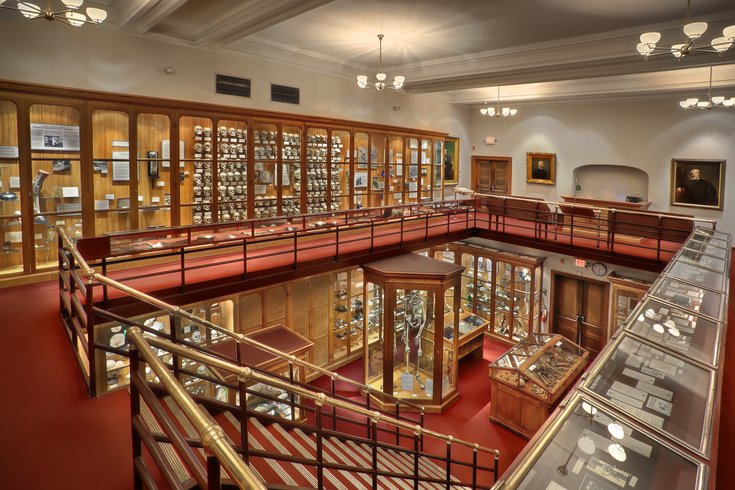
October 04, 2017
 George Widman/The Mütter Museum of The College of Physicians of Philadelphia/Courtesy
George Widman/The Mütter Museum of The College of Physicians of Philadelphia/Courtesy
The main gallery of The Mütter Museum of The College of Physicians of Philadelphia.
The skull of a soldier killed in World War I housed in a Philadelphia museum will soon return to Australia.
The Mütter Museum of The College of Physicians of Philadelphia is set to meet with Brigadier S.L Gabriel, DSC, military attaché of the Embassy of Australia, in the near future to give back the skeletal artifact that once belonged to Pvt. Thomas Hurdis, the museum announced this week.
“I very much appreciate [the Museum’s] understanding and respect for the nature of this request and the considerable detail [they] have provided…including how this has directly contributed to the development of military medicine capabilities," Gabriel said in a letter to the museum.
The Australian Army first contacted the museum in August, according to The Associated Press. Controversy regarding Hurdis' remains was first raised last week in the Guardian by Australian columnist Paul Daley, who wrote that it was "surprising" to find one of the country's fallen in an American museum home to "sometimes freakish exhibits."
Hurdis, of New South Wales, was shot in the face during the Battle of Polygon Wood near Ypres, Belgium, on Sept. 28, 1917. He was treated by a Philadelphia doctor in France and died days after the incident. He was 27, according to the Guardian.
The museum told the AP that the British government had given it the skull in 1919, but Australian politician Linda Voltz called it a "travesty" to have Hurdis' remains "on display as a curiosity in a medical museum" in a Facebook post on Friday.
t
The museum told the AP that Hurdis' remains haven't been on display "in years," and was used for academic purposes.
“We can appreciate the position of, and are sympathetic to the mission of the Australian Army," Robert Hicks, Ph.D., and director of the museum, said in a statement Tuesday. "The recovery of remains of soldiers who were lost in combat or died as prisoners of war is vital work."
A date for the meeting between the two is expected to be arranged by the end of the year.